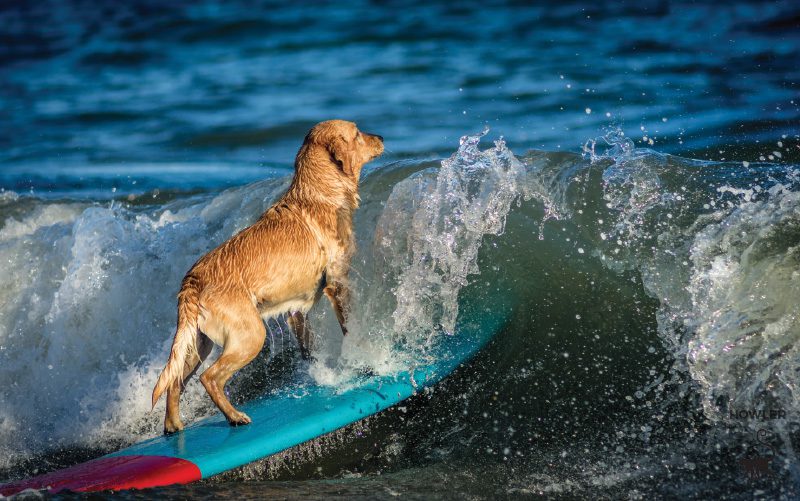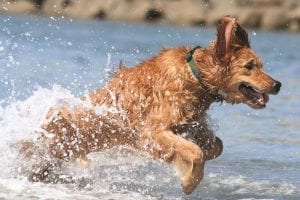
Pet Care: Water Health & Safety
We are surrounded by water environments with ocean and pools, exposing us to both salty and freshwater that can sometimes prove to be problems for our pets. The following information will provide you with some ideas on how you can prevent water issues for your pet and what you can do when they do occur.
Ear Infections:
Sometimes water can get into our pet’s ears, causing infections. When looking to treat this, we have to consider the type of ear our pet has, whether it be the amount of hair in the ear and the amount of cerumen (wax) it produces. Normally an ear has to be cleaned at least once a week: an ear cleaner and just a piece of cotton will be enough. There is no way to hurt the ear if you go just as deep as your finger can go. Do not use Q-Tips unless a veterinarian tells you to do so in a particular case. Some ears, like those of water breeds like labradors, golden retrievers, and terranovas, are full of hair that protects the external and middle ear from getting dust or other materials inside. In other breeds like French poodles, the hair in the ear keeps the wax totally inside, possibly causing ear infections. In fact, you can notice that the hair inside the ear is dead and sometimes can be easily removed. There is a powder for this that is easy to put in and allows you to pull out the dead hair in one minute. Like swimmers do, we suggest you apply petroleum jelly in your pet’s non-infected ears. This will prevent any water that enters the ear while swimming or diving from staying inside.

Swimming Pets:
Not all dogs like to swim, and in my opinion, we have to respect that. A good swimmer is a dog that you see swimming slowly, without panting or scratching. If it’s the opposite, then it’s simple, the dog is not enjoying the experience. Swimming is good therapy for old dogs with osteomuscular diseases, always with the proper assessment and guide. There are also floating devices to make them feel comfortable and safe in case they swim in the ocean.
Skin Issues:
Many skin issues can come from being constantly wet with either fresh or salty water. With fresh water, it is really common for animals who are left damp to get skin infections between their “finger” areas, especially in breeds with larger interdigital membranes. Drying them out will prevent these conditions. Some breeds with longer coats, or even labradors, might need to get shaved. Being a labrador breeder, I’ve been shaving all my Labs every three months since we moved to this area 10 years ago. I’ve found it’s really easy to keep them clean and fresh just by doing it. I recommend that you always rinse your pet’s hair of salt water because it dries the skin and makes them itchy. There is a particular soap called Vetriderm by Bayer that we recommend our clients use after a day at the beach. Made from chamomile and aloe vera, the solution disinfects and rehydrates skin at the same time and can be used daily if needed.
Paws:
Remember that pets’ paws can get burned from walking on hot surfaces, including sand or pavement. They also run the risk of getting cuts from beach rocks or getting sticks in between fingers. There are creams to make paws harder in order to prevent these situations.
Drinking Salty Water:
This is more common in puppies than in adult dogs. It might cause diarrhea and in some cases, a veterinarian must be seen. Avoid games that will make your dogs swallow salty water or even sand until they learn how to play more effectively with water.
Always provide fresh water to drink; heat stroke is really common in our area. Make sure to NEVER leave your pet inside the car unattended! Even with the car and AC running, you never know if it may shut down while you are away.
Reminders:
The requirements for dogs to enter Costa Rica are:
- Rabies vaccination (you will need to vaccinate your pets for rabies more than 30 days before travel);
- Distemper, parvovirus, hepatitis, and leptospirosis vaccination;
- Internal and External parasite treatment within 15 days.
